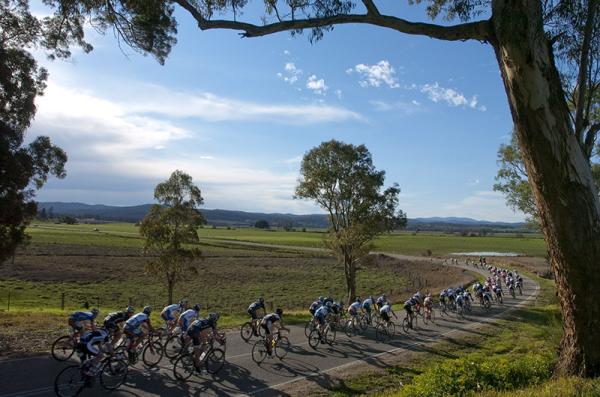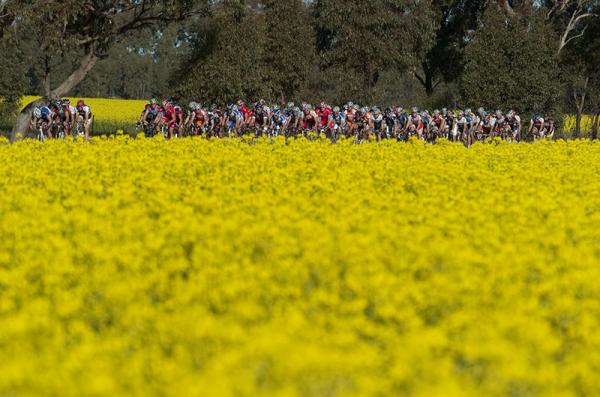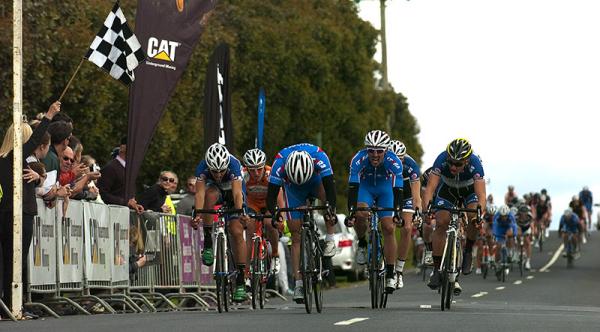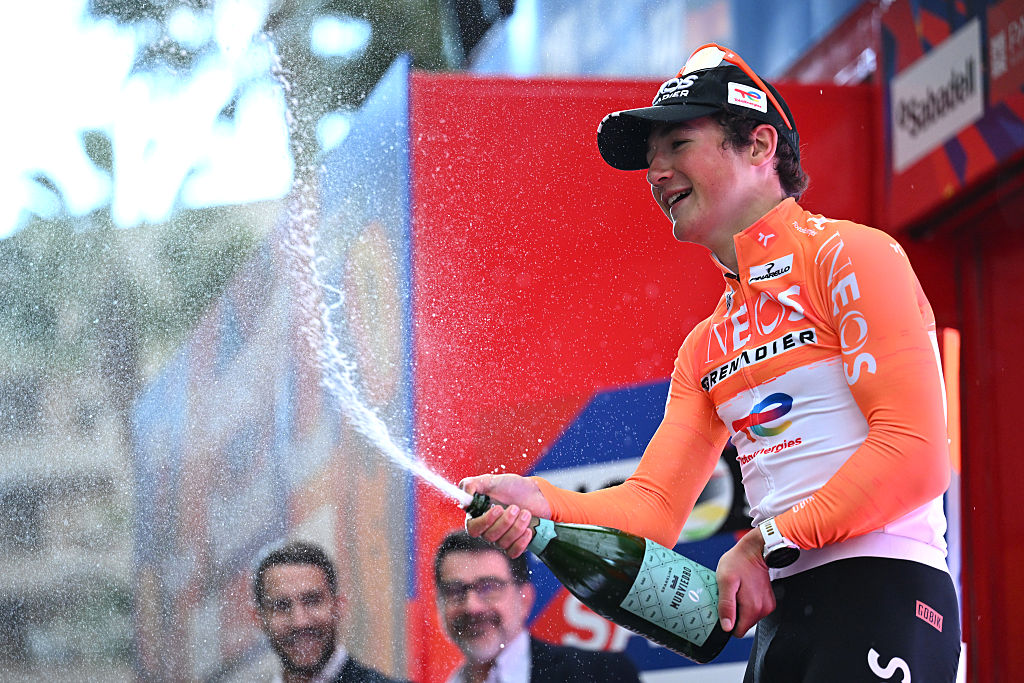Santos North Western Tour seeks quieter roads for future events
Rider safety under review following stage 5 debacle
The latest race content, interviews, features, reviews and expert buying guides, direct to your inbox!
You are now subscribed
Your newsletter sign-up was successful



There were mixed feelings following the conclusion of the inaugural edition of the Santos North Western Tour on Sunday which saw a field of just 25 riders race into the city of Tamworth. It was a dramatically reduced field which had begun with 117 riders. Mark O’Brien (Budget Forklifts) won the overall title but unlike the previous two NRS tours he’s won (Mersey Valley Tour and Tour of Toowoomba) he didn’t actually race the final stage into Tamworth.
The race had been stopped with around 90km still to go in the men’s stage which followed a relatively flat route from Gunnedah to Tamworth due to riders continually crossing-over the middle line of the road. Under the permits granted by the NSW Police, only the left-side of the road could be used for the duration of the four-day event.
"Some guys were doing the right thing but a lot of riders were not following the instructions of the race commissares and so the organisers stopped the race," said Trent Wilson, manager of GPM – Wilson Racing.
A number of managers spoke with each other and came up with a format that would mean the race could continue, albeit in a reduced format. Wilson spoke to Cyclingnews about how the race could go on.
"There was a similar situation in the Sun Tour about 10 years ago during a rain-soaked criterium," he said. "There were train tracks on the course and it got too dangerous to keep racing. We spoke about basically putting a rider from each team in the break and they could race the stage while the rest of the bunch basically went for a training ride."
Race organiser Kurt Pollock felt it was the best decision for the riders and the general public.
"Each team was given an opportunity to select one rider from their team and the riders who entered as individuals were also given the option to. There were no troubles at all once the race was restarted," he said.
The latest race content, interviews, features, reviews and expert buying guides, direct to your inbox!
The riders picked to contest the finish didn’t hold anything back once they were allowed to continue.
"I thought they were just going to chop-off and start attacking each other 30km from the finish but it was the total opposite," said Wilson.
A breakaway of two riders quickly formed before a chasing duo including eventual stage winner Joe Lewis (RBS Morgans – ATS Pro Cycling) caught the front two with just 6km remaining. Lewis managed to edge out Josh Taylor (GPM Wilson – Racing) by the smallest of margins while Jeremy Scott (Skoda St George NRS Team) finished third.
It was a small consolation for the organisers who will look to learn from this experience and make important changes in order to improve next year’s event.
"Obviously for next year we'll be taking on some different advice and looking at courses which do not travel along major roads. Somewhere where it's a lot safer," said Pollock.
Changes to the course seem to be a necessity for the event to run smoothly next year. Pollock, who knows the roads well, said there are plenty of options.
"There are back roads where the only vehicles are travelling farmers and away from high-traffic areas. It's something we will certainly look at."
It was something Sean Muir, Cycling Australia’a Road Coordinator backed-up when he spoke about the event.
"I think we are at a stage with the NRS now where we have to insist for a rolling-road closure," he told Cyclingnews. "The pelotons are getting bigger. Yesterday [Sunday] was relatively small but we often get up to 150 and above. It's impossible to keep all the riders on the left side of the road and allow them to race safely. I really think we need to move towards having all the NRS events as a rolling road closure."
Some teams reportedly spoke about sitting-out events which did not have full rolling closures but this isn’t the solution if the sport is to continue to grow. Luckily, there’s too much invested in the current series for the riders and teams to remove key events from their program.
"Teams will always come because there is too much pride and too many [NRS] points at stake toward the final rankings," said Wilson. "But, it's going to be hard task for the organisers to ensure the roads are safe for these races to be run," he conceded.
Pollock was confident about the coming year’s editions and will be using the lessons of this race to build a better event in the future.
"We'll find a solution for next year to make sure the event is run in a safe and competitive manner," he said assuredly. "We’ve already had great feedback from the supporting Shires which is positive news."
This is the just the first step in creating a better event in 2013.
The next race on the NRS calendar is the Tour of Gippsland which runs from 1-5 August.
